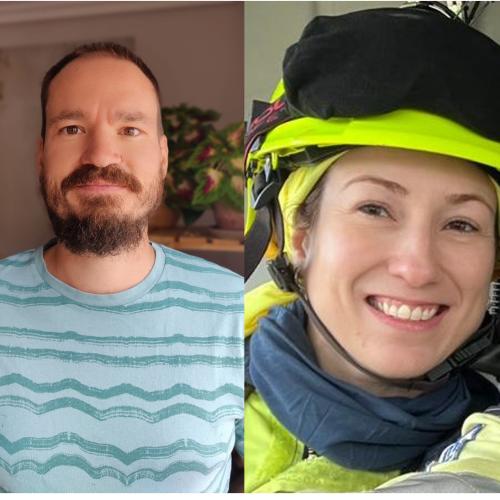
Wildfires 2023: reflections from the UCPM deployment to Canada
Canada continues to battle devastating wildfires this summer. Laura Tierno Patiño and Alberto López Hurtado from Castilla-La Mancha Wildfire Service were two of the firefighters deployed when Canada activated the UCPM for assistance.
Laura and Alberto shared their experience of the deployment as part of the international team from Europe and what they gained from it professionally and personally.


